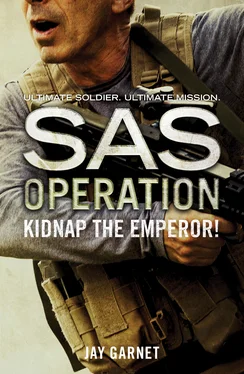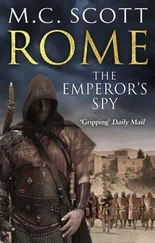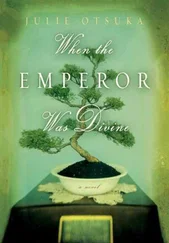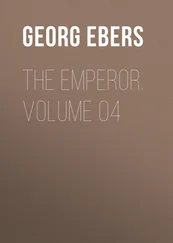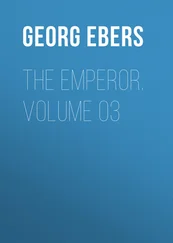‘Oswald? Wie geht’s dir ?…Yes, a long time. We have to meet as soon as possible…I’m afraid so. Something has come up over here. It’s about Lion…Yes, it’s serious, but not over the phone. You have to be here…I can only say that it concerns all our futures very closely…Ideally, this weekend? Sunday evening for Monday morning? That would be perfect…You and Jerry…I’ll have a car for you and a hotel. I’ll telex the details.’
The next call was to New York, to a small bank off Wall Street that had specialities comparable to Cromer’s – though little gold, of course, and more stock-exchange dealings – and a relationship with the Morgan Guaranty Trust Company similar to Cromer’s with Rothschild’s. He spoke to Jerry Lodge.
‘Jerry? Charlie. It’s about Lion…’
The call had a similar pattern to the previous one – prevarication from the other end, further persuasion by Cromer, mention of mutual futures at stake and, finally, a meeting arranged for Monday morning.
In an elegant courtyard of Cotswold-stone farm buildings, some seventy miles north-west of London, Richard Collins raised an arm in a perfunctory farewell to a customer driving off in a Land Rover. A routine morning’s work. One down, twenty-five to go, a job lot from Leyland.
A lot of people envied Dicky Collins. He looked the very epitome of the well-to-do countryman in his tweed jackets, twill trousers, Barbour coats. His Range Rover had a Blaupunkt tape deck, still something of a rarity in the mid-1970s. The farmhouse, with its courtyard and outbuildings, was surrounded by ten acres of woodland and meadow. It was an ideal base for his business, which was mainly selling army-surplus vehicles. In one of the stone barns, converted into a full working garage, there were five Second World War jeeps in various stages of repair, a khaki truck that had last seen action in the Western desert, and several 1930s motorbikes, still with side-cars.
The business turned over quarter of a million. He took £25,000, more than enough in those days. He was forty-eight, fit, successful, unmarried, and bored out of his bloody mind.
For almost ten years he had worked at his bloody Land Rovers and jeeps and trucks, ever since he finished in Aden and Charlie Cromer had given him a £100,000 loan to buy his first 100 vehicles – in exchange for sixty per cent of the equity. Both had judged well. It was a good business, doing the rounds of the War Department auctions. Now things were drying up, prices were rising. Any old jeep you could have got for £100 ten years before now fetched £2000 and up. It was a specialist field, and Collins knew it well. Once he had loved it. The sweet purr of a newly restored engine reminded him of the real thing.
After Aden, he was happy to settle. Hell of a time. Fuzzies fighting for a stump of a country and an oven of a city. Chap needed two gallons of water a day just to stay alive. No point to it all in the end, with Britain pulling out. Not like Borneo – that had been a proper show, all the training put to good use.
Now he was sick of it. Country life could never deliver that sort of kick. Money? It was good, but it would never be enough to excite him. The place was mortgaged to the hilt, the taxman was a sadist, and even if he sold, Charlie Cromer would take most of the profits.
Boredom, that was Collins’s problem. There was old Molly to do the house. The business ran itself these days, what with Caroline coming in two days a week to keep the VAT man at bay. Stan knew all about a car’s innards and could fix anything over twenty years old as good as new. Collins had other interests, of course, but keeping up with publications on international terrorism and his thrice-weekly clay-pigeon practices hardly compared with jungle warfare for thrills. There were parties, there were girls for the asking, but he wasn’t about to marry again. What had once been a comfortable country nest had become a padded cell.
‘Major,’ Stan called from the garage. ‘Phone.’
Collins nodded. He walked through the garage, edging his way past a skeletal jeep to the phone.
‘Dicky? Charlie Cromer. Got a proposition for you.’
Monday, 22 March
That morning, Sir Charles Cromer, Oswald Kupferbach and Jerry Lodge were together in Cromer’s office. The Swiss and the American sat facing each other on the Moroccan leather sofas beneath the Modigliani. Both had been chosen for their present jobs only after an interview with Cromer, who had judged them right for his needs: astute, experienced, hard. Kupferbach, fifty-two, with rimless glasses, had practised discretion for so long he never seemed to have any emotions at all. Professionally, he didn’t. His one passion was personal: he was an expert in the ecology of mountains above the tree line. Lodge – his grandparents were Poles from the city of Lodz – was quite a contrast: bluff, rotund, reassuring. He found it easy to ensure he was underestimated by rivals.
Between the two on the glass-topped table was newly made coffee and orange juice. Sir Charles was standing, coffee cup in hand, having just outlined the approaches made to him by Yufru.
He concluded by saying: ‘So you see, gentlemen, why we had to meet: I have the strongest possible reasons for believing that the Emperor is not dead. I further believe that unless we move rapidly and in concert, we shall shortly be presented with documents bearing the Emperor’s signature demanding the release of his fortune to the revolutionary government of Mengistu Haile Mariam.
‘This would be a financial blow that we, as individual bankers, should not have to endure. Indeed, the sums in gold alone are so vast that their release would devastate the world’s gold markets. While the short-term implications for our respective economies are not pleasant, the implications for our banks and ourselves as individuals are horrendous.’
The Swiss was thoughtful, the American wide-eyed, caricaturing disbelief.
‘Oh, come on, Charlie,’ he said, ‘that’s got to be the most outrageous proposition I’ve ever heard. What are you on? I mean, my God.’
Kupferbach broke in: ‘No, no, Jerry. It is not so foolish. It fits in. There have been a number of approaches in Zurich for loans. They need the money. But their propositions are unrealistic. The World Bank might consider a loan for fighting the famine, but, of course, it would be administered by World Bank officials. They don’t want that.’
Lodge paused. ‘OK, OK,’ he said at last, ‘let’s follow it through. Suppose the old boy is still alive. Suppose he signs the papers. Don’t you think we could persuade the Ethiopians to leave the gold with us? After all, they have to place it somewhere, don’t they? We arrange a loan for them based on the reserves. They buy their arms and fight their goddam wars, and everyone’s happy. Hey?’
‘It’s possible,’ Cromer said slowly, ‘but it doesn’t look like a safe bet to me. You think Mengistu would pay interest, and if he did, do you think his successors would? Would you invest in a Marxist without any experience of international finance who came to power and preserves power through violence?’
‘I agree. But what do you think would happen if we received these documents and simply ignored them?’ replied Kupferbach.
‘Whadya mean, Ozzie?’ said Lodge. ‘We just don’t do as we’re told? We say we’re not going to hand over the funds? We tell the Ethiopians to go stuff their asses?’
‘In brief, meine Herren yes.’
‘If all this is true,’ said Cromer, ‘that thought must have already crossed their minds. In their position, what would your answer be?’
‘Right,’ Lodge said, jutting his lower jaw and biting his top lip. ‘Jesus, if I was them, I’d make one hell of a storm. Major banks refusing to honour their obligations? Yeah, they could really have a go at us. International Court at The Hague, questions in the UN, pressure on other African countries to make holes in Rothschild and Morgan Guaranty investments in the Third World. We’d come out of it with more than egg on our faces.’
Читать дальше
